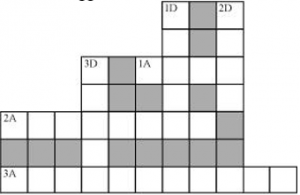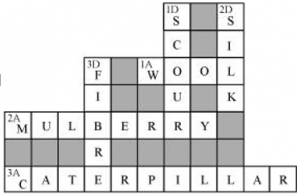NCERT TEXT BOOK EXERCISES
Q1. You must be familiar with the following nursery rhymes:
(i) ‘Baa baa black sheep, have you any wool.’
(ii) ‘Mary had a little lamb, whose fleece was white as snow.’
Answer the following:
(a) Which parts of the black sheep have wool?
(b) What is meant by the white fleece of the lamb?
Ans.
(a) Wool is obtained from the hairy fibres (hair) of the sheep.
(b) White fleece of the lamb refers to the white coloured hair of the lamb.
Q2. The silkworm is
(a) a caterpillar,
(b) a larva.
Choose the correct option.
(i) a
(ii) b
(iii) both a and b
(iv) neither a nor b
Ans.
(iii) both a and b
Q3. Which of the following does not yield wool?
(i) Yak
(ii) Camel
(iii) Goat
(iv) Woolly dog
Ans.
(iv)Woolly dog
Q4. What is meant by the following terms?
(i) Rearing
(ii) Shearing
(iii) Sericulture
Ans.
(i) Rearing: Rearing means helping someone to grow up.
(ii) Shearing: It is the process of removal of fleece along with a thin layer of skin from the body of sheep.
(ii) Sericulture: Sericulture refers to the rearing of silkworms to obtain silk.
Q5. Given below is a sequence of steps in the processing of wool. Which are the missing steps? Add them.
Shearing, __________, sorting, __________, __________, __________
Ans.
Shearing, scouring, sorting, picking of burrs, dying of fibres, making of yarn
Q6. Make sketches of the two stages in the life history of the silk moth which are directly related to the production of silk.
Ans.
The two stages in the life history of silk moth directly related to silk production are

Q7. Out of the following, which are the two terms related to silk production?
Sericulture, floriculture, moriculture, apiculture and silviculture
Hints: (i) Silk production involves cultivation of mulberry leaves and rearing silkworms.
(ii) Scientific name of mulberry is Morus alba.
Ans.
Sericulture and moriculture
Q8. Match the words of Column I with those given in Column II:
| Column I | Column II | ||
| (i) | Scouring | (a) | Yields silk fibres |
| (ii) | Mulberry leaves | (b) | Wool yielding animal |
| (iii) | Yak | (c) | Food of silk worm |
| (iv) | Cocoon | (d) | Reeling |
| (e) | Cleaning sheared skin |
Ans.
| Column I | Column II | ||
| (i) | Scouring | (e) | Cleaning sheared skin |
| (ii) | Mulberry leaves | (c) | Food of silk worm |
| (iii) | Yak | (b) | Wool yielding animal |
| (iv) | Cocoon | (a) | Yields silk fibres |
Q9. Given below is a crossword puzzle based on this lesson. Use hints to fill in the blank spaces with letters that complete the words.
Down Across
(D) 1: Thorough washing (A) 1: Keeps warm
2: Animal fibre 2: Its leaves are eaten by silkworms
3: Long thread like structure 3: Hatches from egg of moth

Ans.









